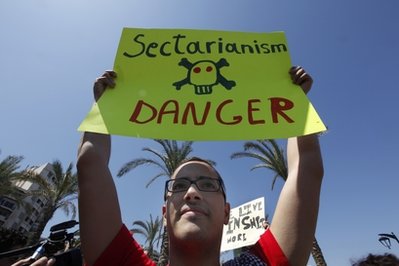By Ghassan Karam

We all belong to tribes. Some well defined by such obvious physical criteria such as race or national origin others are based on metaphysical ideas such as environmentalism, democracy, liberalism or religious affiliation. Tribal loyalties are a significant factor in determining allegiances especially during events that require decision making abilities such as elections.
It has been said time and again that the biggest challenge of modern Lebanon is its political sectarian system, a system originally conceived as a creative solution to a young state made up of different groups that do not share a strong sense of belonging to a nation. The problem that faced our “founding fathers” in 1943 was to find a formula that will bring about stability and cohesion. Thus was born the “National Pact” which allocated the top four national elected offices to various tribes/ religious sects. The President of the Republic was to be a Maronite, The Prime Minister a Sunni, the Speaker of the Chamber of Deputies a Shiite while his Vice President was to be a Greek Orthodox. I wonder whether the National Pact will accept a convert to a sect or whether ones religious views are important at all beyond what the official records show as the new born’s religious affiliation.
Sociologists will go on to explain the need to belong to a group of like minded people especially when civil society is not well developed. In that case the individual does not feel secure and protected from the arbitrary and often unjust application of rules. In such circumstances various individuals will find that by offering their allegiance to the group the tribe will reciprocate by defending the individual and will always come to her aid.
Based on the above, it is clear that tribal allegiances are based on rational thinking. And so is sectarianism. As a result a predominantly Moslem community will not elect a Christian as its representative nor would a Christian village vote for a non Christian. Voting for a person from a different faith is almost similar to voting to an enemy. One does not feel comfortable that the members of different tribes have the same interests and concerns. There isn’t enough trust between the different tribes. Partisanship carries the day.
Being confronted with such traditions that have been well established a society has to find a way to break away from this archaic model. One way is to just proceed and eliminate the current system that allocates elective offices on confessional basis. Whenever this solution is mentioned it is met with a lot of mistrust on all sides. Each tribe feels that the others are waiting to pounce on it and take advantage of its members. As a result no tribe is willing to take the first step and agree to the new method of thinking. The basic obstacle, besides the clergy, appears to be personal concern about personal rights.
That is a legitimate concern but there is an easy way of eliminating it totally. The present government could pass a strong “Lebanese Bill of Rights” that spells out clearly the intrinsic rights of each Lebanese citizen to freedom of speech, expression, assembly, marriage, property etc… The Bill of Rights must also be accompanied with strict transparent enforcements at all levels. Once such measures are enshrined in the Lebanese constitution then the Lebanese citizen will no longer feel the need for protection by pledging allegiance to a religious faith and will be liberated to act as a responsible citizen.
It is important to recognize the rationale that has led to a wide adoption of a feeling that tribalism is essential. We can take two simultaneous steps towards ending this ineffective, unconstitutional and discriminatory system by adopting a personal bill of rights, eliminating political confessionalism and erecting strong walls that separate government from religious practice.
It is important to remind some that article 12 of the Lebanese constitution speaks of merit as being the only requirement for an elective office. It says nothing about religion or lack of it. Isn’t it time that we judge people by their expertise rather than how they pray or even whether they pray at all.

Leave a Reply
You must be logged in to post a comment.